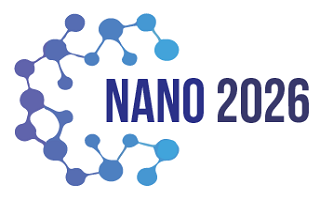3rd World Congress on
Nanotechnology
October 29-30, 2026 | Berlin, Germany

Address: Hans-Grade-Allee 5, 12529 Schonefeld b. Berlin, Germany
Nano 2026

Polytechnic University of Valencia, Spain
Abstract:
In this study, the environmental issue arising from extensive plastic consumption has driven research towards developing biodegradable materials sourced from renewable resources. Biodegradable films based on PLA were produced by incorporating nanoparticles derived from cocoa shell waste, employing two distinct methods to assess the modification of film properties.In the first method, nanoparticles were extracted through infusions of cocoa shell waste, involving prior drying, grinding, and reflux heating. The resulting infusion was filtered, lyophilized, yielding the nanoadditive in powder form. The second method involved a kombucha culture with cocoa shell and sucrose, followed by fermentation, washing, filtering, and sterilization to obtain the nanoreinforcement in powder form.Nanoparticles were incorporated at 1% and 3% weight concentrations in a blend of 75% PLA - 25% PHB, with the addition of borage seed oil as a plasticizer-compatibilizer. Film fabrication was accomplished using a twin-screw microextruder.Characterization results of the film formulations indicated a non-significant decrease in tensile strength values with nanoparticle incorporation, along with a reduction in oxygen transmission rate and alterations in transparency. These findings highlight the potential application of these films in the biodegradable packaging sector.
Biography:
Dr. Mª Dolores Samper has completed his PhD at the age of 32 years from Polytechnic University of Valencia. She is She is secretary of the University Research Institute of Materials Technology (IUTM). She
has published more than 40 papers in reputed journals. She has participated in more than 20 competitive
research projects, being Principal Investigator in 4 of them.
